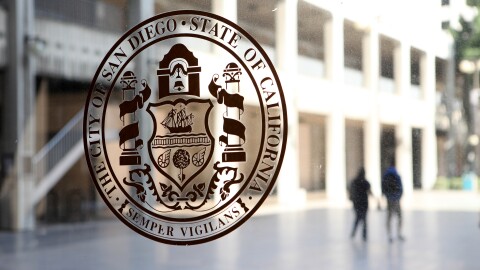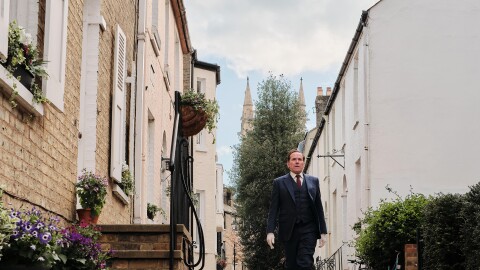
Matthew Bowler
Video JournalistMatthew Bowler is an award-winning journalist from San Diego. Bowler comes from a long line of San Diego journalists. Both his father and grandfather worked as journalists covering San Diego. He is also a third generation San Diego State University graduate, where he studied art with a specialty in painting and printmaking. Bowler moved to the South of France after graduating from SDSU. While there he participated in many art exhibitions. The newspaper “La Marseillaise” called his work “les oeuvres impossible” or “the impossible works.” After his year in Provence, Bowler returned to San Diego and began to work as a freelance photographer for newspapers and magazines. Some years later, he discovered his passion for reporting the news, for getting at the truth, for impacting lives. Bowler is privileged to have received many San Diego Press Club Awards along with two Emmy's.
-
San Diego's old, vacant downtown library is sitting fowl while neighbors, politicians and business people wonder what's next.
-
Educators did more than check out new technology for the classrooms on Friday — they also discussed where technology belongs in education.
-
Even though it's not yet spring time, parents are thinking about next fall’s first day of school.
-
The nearly 74,000-square-foot structure is one of several new facilities to open in the last several years at Mesa, City and Miramar colleges.
-
The school could have opened on time, but it would have cost the district $8 million more because of overtime wages and double shifts.
-
The university's Sexual Violence Task Force on Thursday hosted its first of bi-weekly briefings about sexual violence on the campus.
-
The program is postponed until at least late April after advocates argue that prolonging the program leaves an already vulnerable group at risk during a public health emergency.
-
While some businesses are struggling or closing during the coronavirus outbreak, gun stores are seeing a huge uptick in sales.
-
Former California Republican Rep. Duncan has been sentenced to 11 months in prison after pleading guilty to misspending campaign funds. The former Marine's defense attorneys had asked for home confinement.
- County official overseeing animal shelters complained of 'shit dogs,' too few euthanasias in voice message
- 20 free ways to explore San Diego Design Week 2025
- New trash cans are coming to San Diego curbs in October
- Encinitas rescinds vote on ICE emergency, then reaffirms most prior actions
- Kirk shooting videos spread online, even to viewers who didn't want to see them













